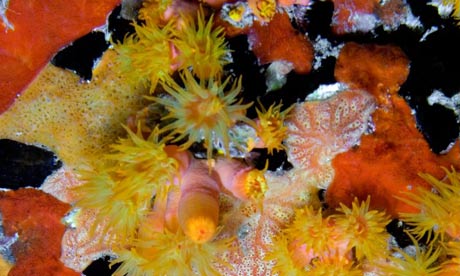 The Guardian, January 24 2008
The Guardian, January 24 2008
Storm damage from waves and death of vital algae likely to become more common, report warns
Warmer seas and a record hurricane season in 2005 have devastated more than half of the coral reefs in the Caribbean, according to scientists. In a report published yesterday, the World Conservation Union (IUCN) warned that this severe damage to reefs would probably become a regular event given current predictions of rising global temperatures due to climate change.
According to the report, 2005 was the hottest year on average since records began and had the most hurricanes ever recorded in a season. Large hotspots in the Atlantic and the Gulf of Mexico powered strong tropical hurricanes such as Katrina, which developed into the most devastating storm ever to hit the US.
In addition to the well-documented human cost, the storms damaged coral by increasing the physical strength of waves and covering the coast in muddy run-off water from the land. The higher sea temperature also caused bleaching, in which the coral lose the symbiotic algae they need to survive. The reefs then lose their colour and become more susceptible to death from starvation or disease.
Impacts
Carl Gustaf Lundin, head of the IUCN’s global marine programme, said: “Sadly for coral reefs, it’s highly likely extreme warming will happen again. When it does, the impacts will be even more severe. If we don’t do something about climate change, the reefs won’t be with us for much longer.” Some of the worst-hit regions of the Caribbean, which contains more than 10% of the world’s coral reefs, included the area from Florida through to the French West Indies and the Cayman Islands. In August 2005 severe bleaching affected between 50% and 95% of coral colonies and killed more than half, mostly in the Lesser Antilles.
The IUCN report highlights pressures on coral reefs in addition to those of overfishing and pollution identified in recent years. A recent study found that reefs near large human populations suffered the most damage.


 Recent research published in the journal
Recent research published in the journal